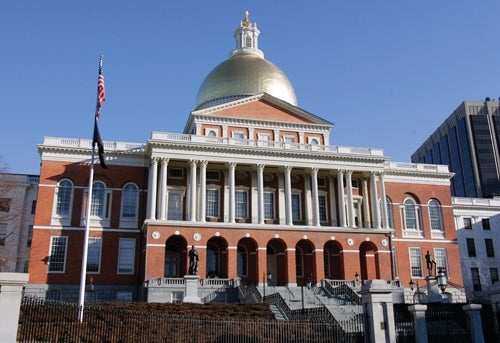A new state ethics law passed in the wake of legislative scandals last year has the leaders of some local nonprofit groups worried.
The law includes a gift ban for public officials, stricter campaign finance regulations, tougher penalties for violators and other provisions, but the aspect that nonprofits are concerned about is the lobbying section. A provision of the law that goes into effect at the start of 2010 expands the definition of lobbying, and some employees of nonprofits say that means they’ve been redefined as lobbyists.
“It has created some great angst within the nonprofit community,” said Tim Garvin, president and CEO of the United Way of Central Massachusetts. “My opinion is that there is a huge distinction between lobbying and advocating… we give voice to people who don’t have voice.”
Expanding Definition
Under the law, lobbying will include background work, strategizing, research and planning, not just actual communication with officials. And people and organizations will formally be considered lobbyists if they spend more than 25 hours of paid time at those tasks in a six-month reporting period. Previously the rules didn’t kick in until 50 hours.
“When you read the rules and regulations and you see how little you have to do to qualify to register as a lobbyist it’s very frustrating,” said Bill Stock, vice president for government and community relations at Seven Hills Foundation of Worcester.
Stock said social service organizations need to interact with the state officials that fund them.
He said he and Seven Hills President David A. Jordan have both registered as lobbyists since the new law passed. That means paying $100 for each of them, plus $1,000 for the foundation as an organization, he said. And it also means keeping records of all kinds of work that they do on a daily basis.
White Hats And Black Hats
But Pam Wilmot, executive director of Common Cause Massachusetts, which helped pass the ethics law, said nonprofits that work to affect the government are as much lobbyists as anyone else and ought to face the same transparency requirements.
“Lobbyists, as an entity, we think of Jack Abramoff with a fedora and a cigar,” Wilmot said. “But that is not the whole story. That’s only a small part of the story.”
Wilmot said some nonprofits’ objections to the registration requirement amount to “I’m promoting a good cause, and I’m not a hired gun so I shouldn’t have to register,” but she said that kind of reasoning isn’t a basis for good public policy.
“Many advocates for good causes are registered lobbyists, and what is or is not a good cause is really in the eye of the beholder,” she said. “We can’t have delineations based on that.”
Wilmot, who is a registered lobbyist herself, said the paperwork associated with the designation only eats up about an hour of her time for each six-month reporting period.
Garvin and others in the nonprofit world hope the state legislature will agree to make some tweaks to the legislation before it goes into effect. One proposal on the table would remove the 25-hour limit for unregistered lobbying. Instead, a person would be considered a lobbyist only if they are paid $2,500 or more for lobbying activities in a six-month period.
Wilmot said she can see a good argument for a change like that, since it would protect interns and other low-paid employees from being forced to register if they spend a little time on policy work. But she said she sees no need for major revisions.
“It’s critical that we cover who needs to be covered,” she said. “I think we passed a very good law.”

